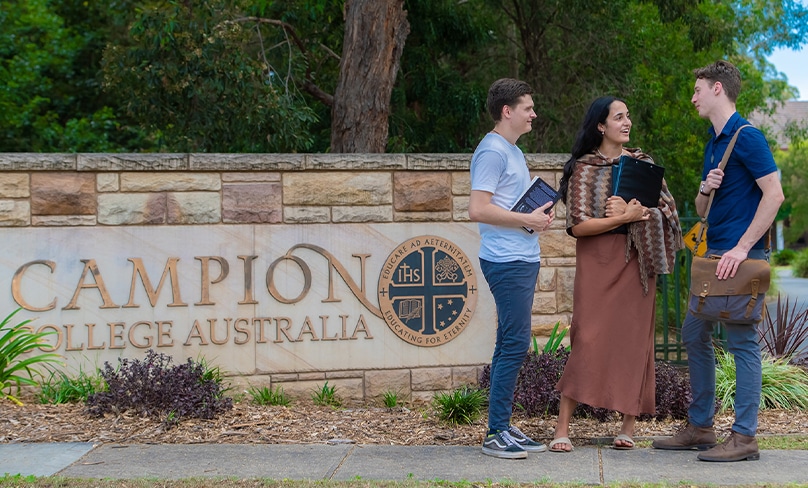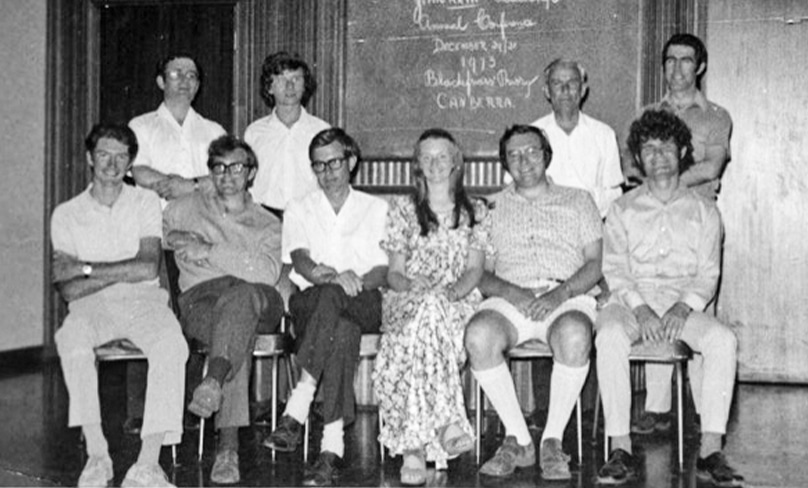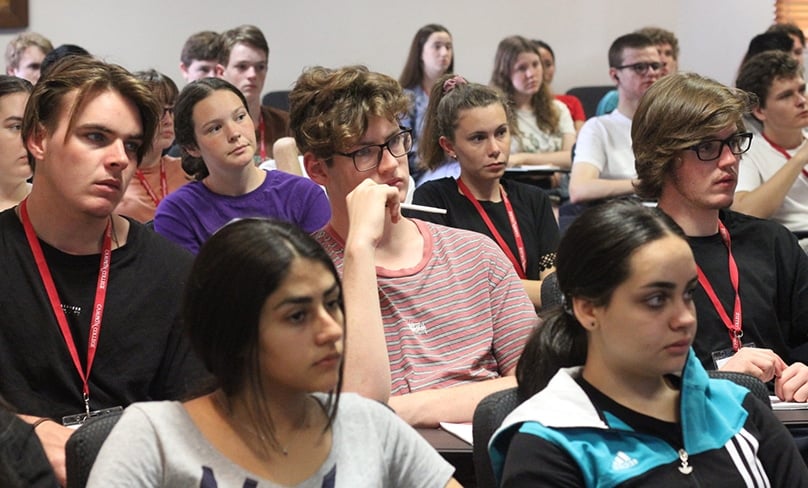
The Fellowship of John XXIII, an Australian precursor to Campion College, was born 50 years ago. Karl Schmude reflects on its significance for the Church and Australian society.
The founding in 1972 of a lay movement here in Australia named in honour of Pope St John XXIII may be readily seen as a fruit of the Second Vatican Council.
The John XXIII Fellowship was without doubt a response to the Council’s call for renewal and the fresh emphasis it gave to the role of the laity. But it was also a new expression of an Australian Catholic tradition.
These native roots may have been overlooked as the Fellowship combined two elements regarded as uncommon in the Australian Church. It was a lay initiative which took place in the intellectual and educational sphere.
The most significant flowering of this tradition was in the early 1930s when the Campion Society was founded in Melbourne and then spread rapidly throughout Australia.
The Fellowship re-enacted the Campion tradition by being an intellectual movement with an apostolic purpose. It sought to enlist learning in the service of Christian truth and the life of the Church.
It was not primarily an academic gathering, though it recognised the value of scholarly endeavour in illuminating truth.
“The inaugural and long-serving President, John McCarthy QC … understood the intersection of faith and politics and shed light on the part played by Catholics in Australian political history.”
Nor was it simply a discussion group for the airing of solutions to the problems in the Church.
Its essential nature is reflected in its founding members and their varied contributions to the perspectives of the Fellowship at annual conferences over a period of thirty years.
The inaugural and long-serving President, John McCarthy QC, possessed legal expertise and political acumen and later served as Australian Ambassador to the Holy See.
He understood the intersection of faith and politics and shed light on the part played by Catholics in Australian political history.
His wife, Christine, a concert pianist, brought to the Fellowship the beauty of classical music and, as founder of the Society for Eucharistic Adoration, showed the centrality of a truly Catholic spirituality.
Dr Colin Jory, who served as the Fellowship’s secretary and archivist, wrote the definitive history of the Campion Society and went on to become an accomplished Shakespearean scholar.

He provided original insights into the effects of the Sexual Revolution in producing what he called a “contraceptive culture”.
Terry Monagle, a teacher who pioneered the development of Catholic teachers’ unions in Australia, was also an essayist and poet who brought to the Fellowship the wonders of literature as a pathway to reality through the life of the imagination.
Peter Elliott, a convert who was ordained priest shortly after the Fellowship’s founding, later becoming an Auxiliary Bishop of Melbourne and an official of the Pontifical Council for the Family in Rome, had an expert understanding of catechetics and liturgy.
He saw at an early stage the rise of a lay elite in these areas, which constituted a “new clericalism” in the Church rather than a genuine liberation that would equip the laity to spiritually renew the secular order.
A fellow Melbourne priest, Denis O’Brien, was active in the pro-life movement and a penetrating interpreter of popular Catholic culture in Australia, America and Asia.
The De La Salle Brother, Christian Moe, a scholar and teacher who served as editor of the catechetical journal Our Apostolate, gave the Fellowship informed expositions of papal encyclicals as they were issued.
“The Fellowship’s prime aim was to promote, through writing and public speaking, a deeper understanding of Catholic Christianity in all its incarnations – the historical experience of a people called to continue in time the offering of Christ’s redemptive love.”
A key mark of the Australian character of the Fellowship was its informal style and structure. It was an association of friends rather than a formal organisation.
The Fellowship’s intellectual confidence came from the spiritual and intellectual riches of the Catholic tradition rather than the passing approval of the dominant secular culture.
The Fellowship’s prime aim was to promote, through writing and public speaking, a deeper understanding of Catholic Christianity in all its incarnations – the historical experience of a people called to continue in time the offering of Christ’s redemptive love; the insights of philosophical and theological reflection; the appeal of literary characters whose lives were touched by grace; and the capacity of artistic and musical expression to lift the mind and heart to God.
At its conferences, the Fellowship probed this understanding in the context of cultures, both historical and contemporary.
It was this approach which revealed the importance of the Church in forming a way of life that helped to make Christian belief credible and a Christian life practicable.
Only by creating a culture – a web of symbols and rituals, memories and habits, experiences and expectations – could the faith be made accessible to ordinary people, and brought within the orbit of ordinary life.

This task had become more urgent in the 1970s when the Fellowship emerged.
Western culture, the historical citadel of the Christian faith, was already moving to abandon the beliefs and values that had shaped and inspired its historical development, informing its laws and institutions and the fabric of its social life.
From the outset, in the midst of these religious and cultural transformations, the Fellowship emphasised Catholic fidelity and a love of the Church – not as a human organisation but a divine organism, which gave access to God’s life and love and the wisdom of His ways and was a balm for troubled souls.
Like any organisation that was socially based, the Fellowship was not destined to last beyond a single generation without institutional form.
What proved to be a way of preserving its vision and extending its influence was the creation of Campion College.
The Fellowship did not launch or sponsor Campion, but it provided a sustained setting for its formation.
“The importance of these long years of preparation became clear by the time Campion was founded in 2006, a task I undertook for five years …”
Among like minds, the purpose and value of a Catholic liberal arts college in Australia could be rehearsed, and its animating ideas tested and refined.
The importance of these long years of preparation became clear by the time Campion was founded in 2006, a task I undertook for five years with James Power Senior, a businessman and friend who was also a member of the Fellowship.
In 1987, the John XXIII Fellowship recognised its Australian Catholic roots more explicitly by being renamed the Campion Fellowship.
Campion College honours the heritage of the Fellowship – and, at an earlier stage, the Campion Society. It stands as a reminder of their seminal influence and abiding inspiration.
